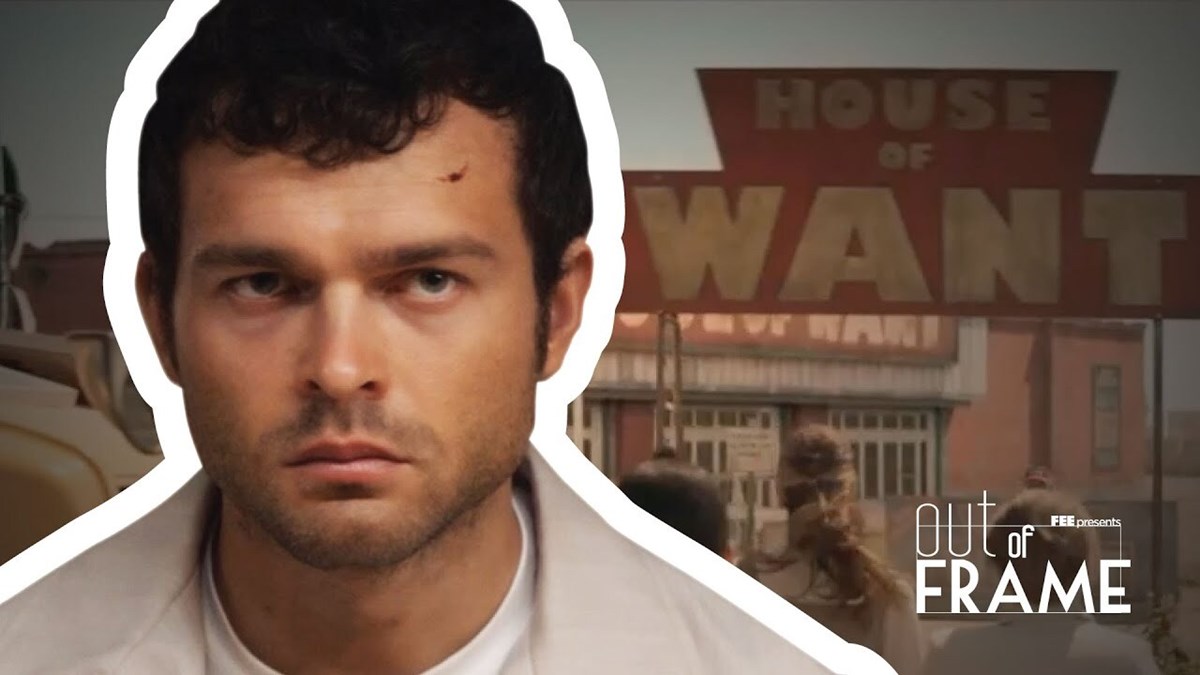What do people need to be happy?
In the new Peacock original series Brave New World, as well as the 1932 Aldous Huxley novel it’s based on, happiness in the fictional society of New London is mandated by the powers that be. Everyone in New London is genetically engineered and psychologically conditioned to be suited to, and satisfied with, a specific role in their society. They’re encouraged to the point of compulsion to engage in every kind of hedonistic indulgence imaginable. There are no difficult decisions to be made. And for those pesky times when discomfort or anxiety rear their ugly heads, the perfectly effective, perfectly side-effect-free drug Soma is there to smooth it away.
Everyone is happy.
Except that they’re not.
But why? Why, when every physical need is amply satisfied and every pleasure available and every discomfort eased, would people not be happy? Why would a worker kill himself in the opening act? Why would some citizens need the occasional “reconditioning” in order to bring them back in line? Why do the residents of New London feel the need for so much Soma?
Especially given that the fictional world of New London that Huxley imagined back in the early 1930s rather closely resembles the fantasies of “luxury communism” that have been recently proposed, it’s an important question.
Happiness is… weird, which may seem weird to say. After all, we all know what happiness is. Don’t we?
Broadly speaking, yes, we can define happiness as a general state of contentment with one’s circumstances. Generally, people who are happy know and pursue their life’s purpose, they smile a lot, they’re meeting their basic needs for survival, they’re able to give and receive gifts and attention without resentment, and are free of strife.
But that’s not all that we need to be happy. For a lot of people, not having to fuss with making decisions about difficult things—or even easy things!—sounds pretty relaxing. Never having to hear, see, or otherwise experience activities or ideas they find objectionable feels comforting. A place for everyone and everyone in their place with no worry about whether or not it’s what they want to be doing with their life appears neat, clean, and ideal. Surely, this is what happiness for everyone looks like.
And maybe, just maybe, it would be nice, for a little while. Just like a vacation is nice, for a little while. When bills are due and stress levels are high and the kids are asking what’s for dinner, yes, I certainly understand the appeal.
But I wouldn’t want to live my entire life that way. And in practice, highly-controlled societies like the Soviet Union or modern-day North Korea, where what you do, what you consume, where you go, and who you do it all with is decided by someone else, happiness tends to be in pretty short supply.
This is because happiness is intrinsically tied to personal choice and autonomy. It’s about feeling like you have control over your own life. Material comforts are nice and all, but they don’t seem to have that big of an impact on people’s happiness levels. But studies have shown that autonomy is the number one predictor of happiness.
And it is autonomy that’s conspicuously missing from the fictional society of New London and from real-life command-and-control societies around the world.
But maybe having an easy, cushy life would still be better, if we were able to arrange it so a certain measure of autonomy could be accommodated. After all, it’s so distressing to worry about bills and dealing with people who don’t agree with you, to deal with anxiety and pain. Wouldn’t we be better if we could eliminate those things?
No, not really.
And it isn’t as though we haven’t tried. We have. Certain portions of American society have worked very hard to eliminate psychological discomfort with intellectual coddling, safe spaces, and a hyper-focus on self-esteem.
The result is millions of people who don’t know how to handle adversity or discomfort. The result is fragility. Our society, broadly speaking, is wealthier, healthier, and more comfortable than it’s ever been, and yet, more people are struggling with anxiety than ever before.
The human psyche doesn’t actually do well with perfect comfort and zero difficulty. It isn’t particularly pleasant, but distress, discomfort, and disorder can be good for us. Adversity actually makes us stronger. Author Nassim Nicolas Taleb coined the term “antifragile” to describe this phenomenon. He explains:
Some things benefit from shocks; they thrive and grow when exposed to volatility, randomness, disorder, and stressors and love adventure, risk, and uncertainty. Yet, in spite of the ubiquity of the phenomenon, there is no word for the exact opposite of fragile. Let us call it antifragile. Antifragility is beyond resilience or robustness. The resilient resists shocks and stays the same; the antifragile gets better.
And the human psyche is antifragile.
Even if it were possible to perfectly control our social environment to shield ourselves from conflict and experience only pleasurable interactions like in New London—and, to be clear, it emphatically isn’t possible—our world itself is a chaotic, largely unpredictable place. As we are all too keenly aware right now, disease and natural disasters are always a possibility, even if nothing else were on the table.
Disruptions to supply lines, changes in our understanding of the natural world, or simply growing up are all shocks to our systems. If we don’t allow ourselves to experience and become accustomed to the discomfort of change, not only will we as individuals and as a society stagnate, we will become so fragile that a single hammer-blow of unanticipated hardship could shatter us.
Happiness cannot be engineered. Humans cannot have all—or even a slim majority—of their choices made for them and still be happy. Autonomy—that is, freedom—is necessary for human happiness.
While the psychological research on this might be relatively recent, this wisdom did not escape early 20th-century economists. Economics is, after all, at its core, the study of human behavior and interaction. Austrian economist Ludwig von Mises wrote in his book Liberalism in 1927,
It is impossible, in the long run, to subject men against their will to a regime that they reject. Whoever tries to do so by force will ultimately come to grief, and the struggles provoked by his attempt will do more harm than the worst government based on the consent of the governed could ever do. Men cannot be made happy against their will.
The tendency of so many generally-well-meaning people, from academics to helicopter parents, to socially engineer a perfectly happy society with no strife, no discord, no struggle will always have the opposite effect. The attempts to “fix” the problems with human nature will always backfire.
People can’t be forced into being “better.” People cannot be forced into being happy.
And while freedom is no guarantee of happiness, it is essential if we are ever to be able to find it on our own.

